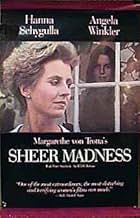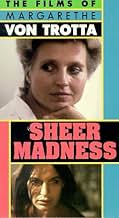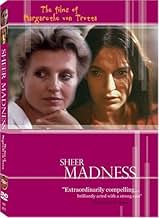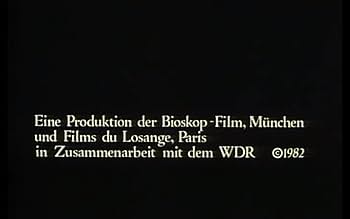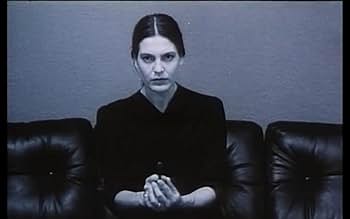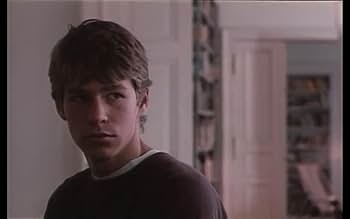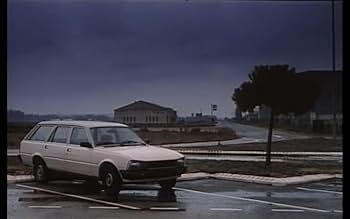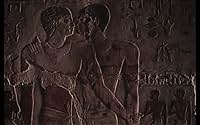Ajouter une intrigue dans votre langueOlga and Ruth become friends. Olga is independent, separated from her husband, living with an immigrant pianist, and teaching feminist literature. Ruth is withdrawn, a painter, possibly ment... Tout lireOlga and Ruth become friends. Olga is independent, separated from her husband, living with an immigrant pianist, and teaching feminist literature. Ruth is withdrawn, a painter, possibly mentally ill. Ruth dreams in black and white, sometimes of her suicide. Olga lectures on a 19t... Tout lireOlga and Ruth become friends. Olga is independent, separated from her husband, living with an immigrant pianist, and teaching feminist literature. Ruth is withdrawn, a painter, possibly mentally ill. Ruth dreams in black and white, sometimes of her suicide. Olga lectures on a 19th-century writer, von Günderrode, a suicide after the breakup of her intense friendship wi... Tout lire
- Réalisation
- Scénario
- Casting principal
- Récompenses
- 1 victoire et 2 nominations au total
Avis à la une
This 1982 film, which I recently saw at a Von Trotta Retrospective, now has a crispy clear image which makes it look fresher than recent films. Since the subject matter is not date sensitive, one would think the film is brand new. However, if you know the two main actresses (two of Germany's greatest in the 70s and 80s), you'll know it's not as recent as it looks.
The two actresses in the two main roles are Hanna Schygulla (also a Fassbinder muse) and Angela Winkler, who was Von Trotta's "Katharina Blum" some seven years before this performance. Winkler gives the stronger performance as Ruth, a mentally challenged artist with potential reactions like her "Katharina Blum" character.
Schygulla is the apparently more centered Olga. She will help Ruth, and have a hand in Ruth's transformation, but she will also be affected by Ruth. Strong performances from both actresses, well directed by Von Trotta, make this film unusual in the realm of cinematic claustrophobic character studies. Another must-see for Von Trotta fans.
The protagonists of this film are Olga (Hanna Schygulla) and Ruth (Angela Winkler). Olga is a successful professor of romantic literature recently separated from her husband Dieter. Her favorite subject seems to be Karoline von Günderrode, one of many highly educated women writers and poets in early 19th century Germany, whose works were automatically underrated and/or neglected as "women's writing". Olga's point: many of these woman had no other way to express themselves than through their husbands, lovers or brothers.
Ruth was a teacher. Traumatized by her artist brother's suicide, she gave up her job and withdrew almost completely from human contact. She paints and has attempted suicide. Her husband Franz is a colleague of Olga and encourages her to befriend Ruth. Dieter, a theater director seems to resent Olga's success and independence, while Franz tries sincerely but clumsily to "protect" Ruth by canceling an exhibit of her paintings arranged by Olga. Although there are good intentions from all sides, the mix explodes into a dramatic ending which, in fact, may be imagined or symbolic. Amusingly, both Dieter and Franz seem to embody negative sides of husband Schlöndorff (whom the director divorced in 1991).
I liked this film. Acting (especially from the principals) is excellent as is Michael Ballhaus' cinematography. Direction fits perfectly the action and writing (by the director) will need your full attention: every dialogue is vital. If there is a message is the lack of support or recognition (if not downright suppression) of women's achievements by male society, as exemplified by Günderrode. This seems to be the subject of many of Von Trotta's movies. She also has explored the other side of the coin; that of women of high achievements in spite of (or against) the rules of male society; Rosa Luxemburg (1985), Hildegard von Bingen (2009), Hannah Arendt.(20012).
Le saviez-vous
- AnecdotesFinal film of Carla Egerer.
- ConnexionsFeatured in Die Neugier immer weiter treiben (1995)
- Bandes originalesWill You Still Love Me Tomorrow?
Written by Gerry Goffin and Carole King
Meilleurs choix
- How long is Sheer Madness?Alimenté par Alexa
Détails
Contribuer à cette page


